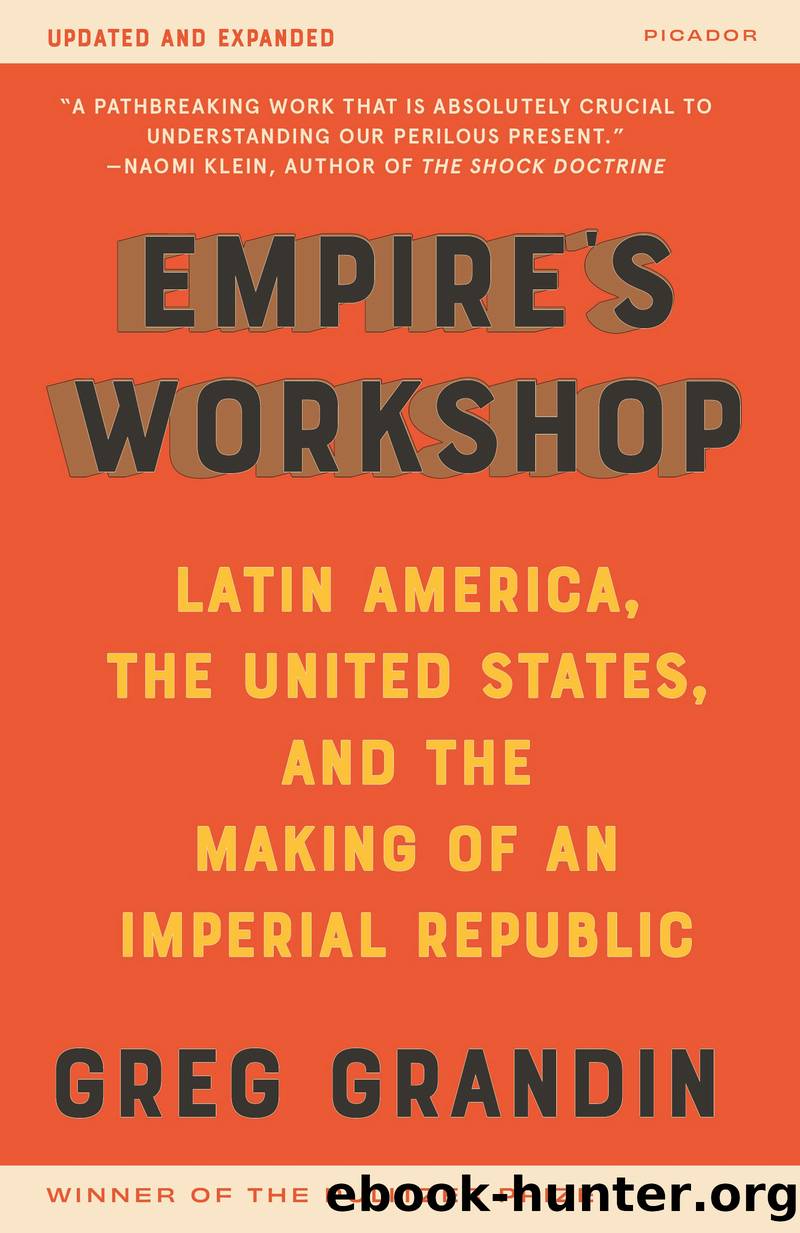Empire's Workshop by Greg Grandin

Author:Greg Grandin
Language: eng
Format: epub
Publisher: Henry Holt and Co.
THE WORLD TREND
âTo us, it was a revolution,â said government economist Miguel Kastâa âmystical Catholicâ Opus Dei member and follower of both Hayek and theologian Michael Novak.23
Similar to some in the Iran-Contra coalition discussed in previous chapters, many of the Chicago Boys were right-wing Catholics, including a number of adherents of Opus Dei. They saw no contradiction between their fetish of individualism (when it came to the market) and submission to authoritarian order (when it came to submitting to Pinochet). Friedmanite celebration of the market as a site of fulfillment and creativity harmonized with the Christian fundamentalist rebuttal to liberation theology: far from being amoral, the profit motive reflects grace, since it helps fallen man escape from a world of scarcity and want. Those able to escape confirm they are touched by grace. Those, be they individuals or nations, mired in misery confirm they are wretched by divine design. Thus the paradox: market choice isnât freedom at all but an index of predestination and legitimation of the status hierarchy, easily adapted to the worldview of both the secular and religious New Right: the rich are rich because they are worthy, the poor are poor because they are unworthy.
Where Friedman alluded to the superiority of economic freedom over political freedom in his defense of Pinochet, the Chicago group institutionalized that hierarchy in a 1980 constitution named after Hayekâs 1960 treatise The Constitution of Liberty. The new charter enshrined economic liberty and political authoritarianism as complementary elements. The drafters justified the need for a strong executive such as Pinochet not only to bring about a profound transformation of society but to maintain it until there was a âchange in Chilean mentality.â Chileans had long been âeducated in weakness,â said the president of the Central Bank, and a strong hand was needed to âeducate them in strength.â24 The market itself would provide tutoring: when asked about the social consequences of the high bankruptcy rate that resulted from the shock therapy, Admiral José Toribio Merino replied that âsuch is the jungle of ⦠economic life. A jungle of savage beasts, where he who can kill the one next to him, kills him. That is reality.â25
Before such a savage nirvana of pure competition and risk could be attained, a dictatorship was needed to force Chileans to accept the values of consumerism, individualism, and passive rather than participatory democracy. âDemocracy is not an end in itself,â said Pinochet in a 1979 speech written by two of Friedmanâs disciples, but a conduit to a truly âfree societyâ that protected absolute economic freedom. Friedman hedged on the relationship between capitalism and dictatorship, but his former students were consistent: âA personâs actual freedom,â said Finance Minister de Castro, âcan only be ensured through an authoritarian regime that exercises power by implementing equal rules for everyone.â26 âPublic opinion,â he admitted, âwas very much against [us], so we needed a strong personality to maintain the policy.â27 And they also needed a strong intelligence agency-cumâdeath squad. The Directorate of National Intelligence, DINA
Download
This site does not store any files on its server. We only index and link to content provided by other sites. Please contact the content providers to delete copyright contents if any and email us, we'll remove relevant links or contents immediately.
| Arms Control | Diplomacy |
| Security | Trades & Tariffs |
| Treaties | African |
| Asian | Australian & Oceanian |
| Canadian | Caribbean & Latin American |
| European | Middle Eastern |
| Russian & Former Soviet Union |
The Secret History by Donna Tartt(19086)
The Social Justice Warrior Handbook by Lisa De Pasquale(12190)
Thirteen Reasons Why by Jay Asher(8909)
This Is How You Lose Her by Junot Diaz(6886)
Weapons of Math Destruction by Cathy O'Neil(6279)
Zero to One by Peter Thiel(5801)
Beartown by Fredrik Backman(5754)
The Myth of the Strong Leader by Archie Brown(5507)
The Fire Next Time by James Baldwin(5442)
How Democracies Die by Steven Levitsky & Daniel Ziblatt(5218)
Promise Me, Dad by Joe Biden(5153)
Stone's Rules by Roger Stone(5087)
A Higher Loyalty: Truth, Lies, and Leadership by James Comey(4960)
100 Deadly Skills by Clint Emerson(4925)
Rise and Kill First by Ronen Bergman(4788)
Secrecy World by Jake Bernstein(4752)
The David Icke Guide to the Global Conspiracy (and how to end it) by David Icke(4717)
The Farm by Tom Rob Smith(4507)
The Doomsday Machine by Daniel Ellsberg(4490)
